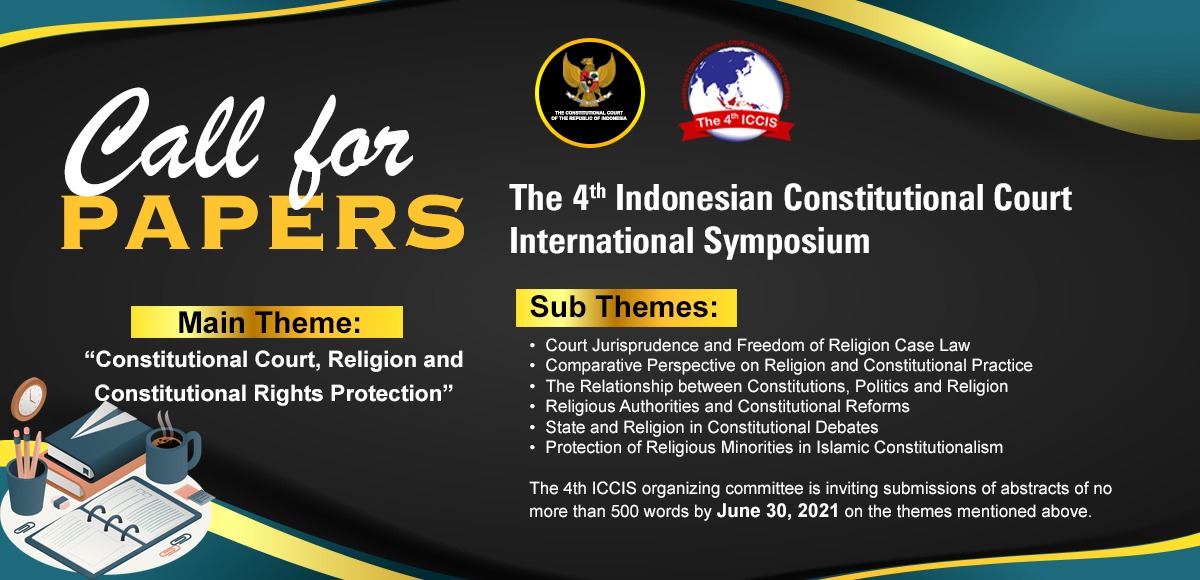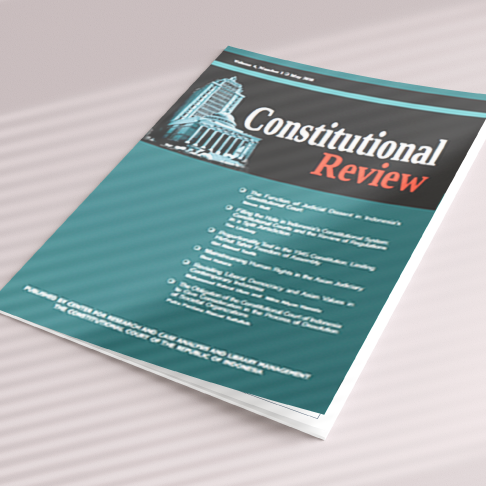CALL FOR PAPERS
Indonesian Constitutional Court International Symposium
(ICCIS 2022)
The Constitutional Court of the Republic of Indonesia looks forward to welcoming you to the 5th Indonesian Constitutional Court International Symposium (ICCIS), which will take place in Bali, on October 5-7, 2022. This will be the fifth annual symposium of the Constitutional Court of the Republic of Indonesia, following the success of our previous international symposia in Surakarta in 2017, Yogyakarta in 2018, Bali in 2019, and Bandung in 2021.
Due to the COVID-19 pandemic, the 5th ICCIS will be held both online and in-person at the venue. The ICCIS is an annual global academic forum for the discussion of ideas in constitutional law. This year’s focus is on issues concerning Constitutional Court and conflict resolution. Selected articles from the 5th ICCIS (subject to peer review decision) will be published by the Constitutional Court’s academic journal, Constitutional Review, managed by our Center for Research and Case Analysis and Library Management.
The theme of the 5th Indonesian Constitutional Court International Symposium (ICCIS) is “constitutional court and conflict resolution”. This theme will enable symposium participants to discuss various perspectives on how to strengthen the role of the Constitutional Court in conflict resolution.
1. Constitutional Interpretation relating to Peace and Reconciliation
In interpreting the constitution, the constitutional court justices can bring a positive contribution by preventing the cause of conflict. Through the constitutional interpretation, the constitutional justices can thus contribute to reconciling conflicts by favouring solutions that remain within the framework of the constitutional order. However, it may also happen that a constitutional interpretation of the constitutional court is itself challenged and provokes violent reactions.
2. The Role of Constitutional Courts in Adjudicating Cases relating to Social and Political Conflicts
Constitutional courts basically have functions to settle social or political conflicts between the parties, and the courts' final decisions resolve conflict with binding force. Therefore, the very existence of the courts and their function to bring final and binding decisions contributes to social and political peace.
3. The protection of Human Rights and Democracy by the Constitutional Courts to Settle Conflicts
The protection of human rights is a precondition to the settlement of conflicts and peace. Therefore, as key actors in promoting and protecting human rights, constitutional courts directly contribute to peace.
In addition, the protection of democratic principles by the constitutional court also contributes to a peaceful transition of government following general elections. The Constitutional Courts can ensure that the principles of free and fair elections are implemented and that state actors respect the constitution.
4. Constitutional Courts as Mediators in Armed Conflict and Civil-Military Relations
While the role of constitutional courts as mediators in armed conflict and civil-military relations is undoubtedly important, there are also limits to what they can achieve. As opposed to political organs, constitutional courts cannot act upon their own initiative; they are limited by authorities. Many constitutional courts may be aware that they have no jurisdiction to settle the armed conflict and civil-military relations cases.
The ICCIS is expected to generate many ideas from the different perspectives of constitutional and comparative law, as well as to offer new perspectives on developments in subjects related to the symposium’s theme.
The Constitutional Court of the Republic of Indonesia gives opportunities to legal scholars, researchers, lawyers and practitioners from all over the world to participate in the ICCIS. All participants are encouraged to submit a paper that align with the theme of this year’s symposium

Professor Engin Yıldırım
Turkish Constitutional Court

Professor Bertus De Villiers
State Administrative Tribunal and Curtin University Law School

Professor Christie S. Warren
Center for Comparative Legal Studies and Post-Conflict Peacebuilding, William and Mary Law School

Professor Roy Andrew Partain
University of Aberdeen

Professor Woo-Young Rhee
Seoul National University School of Law
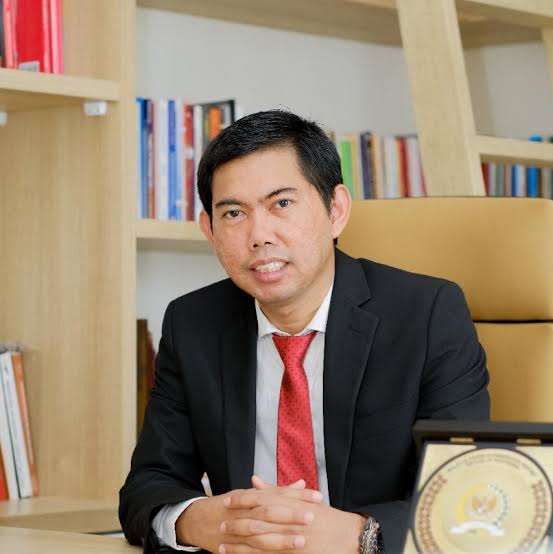
Professor Bayu Dwi Anggono
Faculty of Law, University of Jember

Dr. Ann Black
TC Beirne School of Law, University of Queensland

Dr. Michail Vagias
The Hague University of Applied Sciences

Dr. Miriam Cohen
University of Montreal

Andy Omara, Ph.D.
Gadjah Mada University School of Law, Yogyakarta
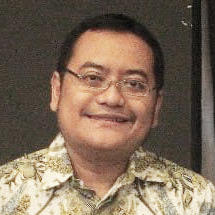
Mohamad Mova AlAfghani, Ph.D.
Universitas Ibn Khaldun Bogor

Max Steuer, Ph.D.
O.P. Jindal Global University, Jindal Global Law School

Zsolt Szabó, Ph.D.
Károli Gáspár University of the Reformed Church

Dr. Yance Arizona
Gadjah Mada University School of Law, Yogyakarta

Dr. Rosa Ristawati
Faculty of Law, Airlangga University

Dr. Radian Salman
Faculty of Law, Airlangga University, Surabaya

Sarah-Michèle Vincent-Wright, LL.D.
Faculty of Law of Université de Montréal
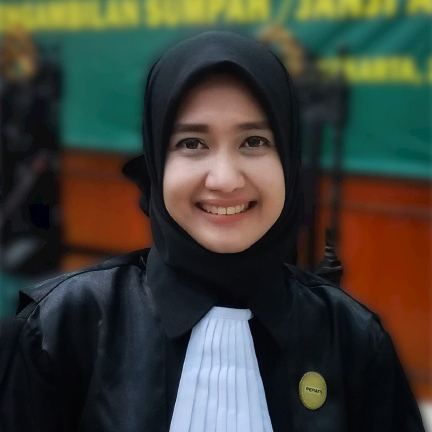
Umi Illiyina
Independent Researcher, Advocate
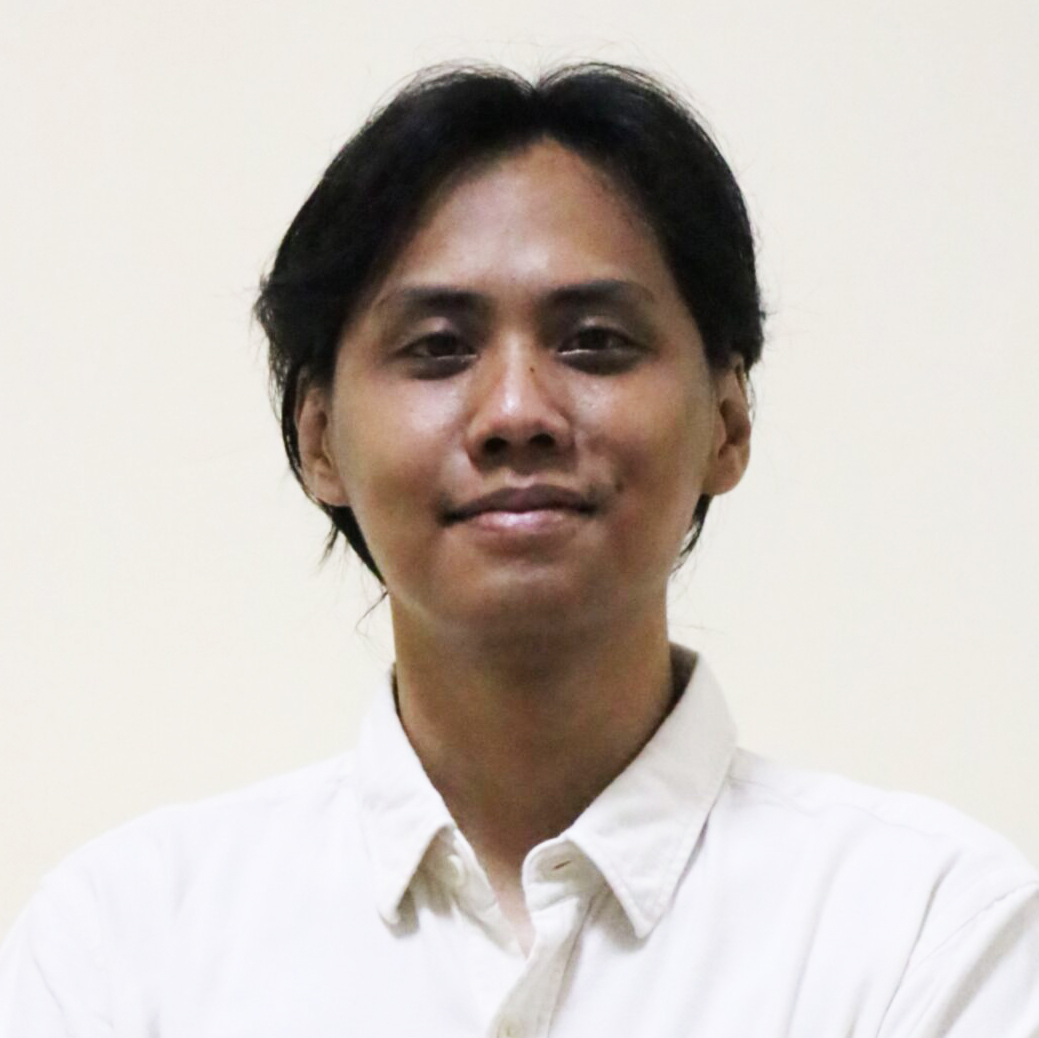
Rian Adhivira Prabowo
Faculty of Law, University of Jember

Nando Yussele Mardika
Faculty of Law, University of Jember
The 5th ICCIS's Video Teaser
Main Theme:
“Constitutional Court and Conflict Resolution”
Sub Themes:
- Constitutional interpretation relating to peace and reconciliation
- The role of constitutional courts in adjudicating cases relating to social and political conflicts
- The protection of human rights and democracy by the Constitutional Courts to settle conflicts
- Constitutional Courts as Mediators in Armed Conflict and Civil-Military Relations
Application Procedure
The 5th ICCIS Organizing Committee welcomes a fullpaper by August 14th, 2022 (extended). Paper should be submitted via online system at iccis.mkri.id with a short bio containing the author’s name, institutional affiliation, and contact details. Selected speakers will be notified during two weeks. All papers will be commented by a discussant and made available limited to the participants and the audience.
Practical matters and requirements for final paper submission:
- The International Symposium will feature a plenary session and panel sessions featuring judges, researchers, scholars, lawyers and decision-makers with focus on the theme of 5th ICCIS.
- We particularly encourage selected speakers to submit a full-length paper (8,000-10,000 words) related to the theme of 5th ICCIS using the Chicago Manual of Style (CMS) Referencing System. Please follow the author guideline here.
- We recommend that authors who are not native speakers of English seek the assistance of a native speaker to proofread their articles before submitting them to the Committee.
- Deadline of full paper submission is on August 14th, 2022 (extended).
- Selected paper announcement August 15th, 2022.
- For further information, please visit our official website at http://iccis.mkri.id.
- Example of articles published in Constitutional Review Journal can be found here.
Should you have any questions please contact: [email protected].
Subsequent Publication:
Selected papers of the conference will be published on the Constitutional Review (ConsRev) journal, a leading legal periodical on comparative constitutional law, human rights and court jurisprudence as an open-access basis managed by the Center for Research and Case Analysis of the Constitutional Court of the Republic of Indonesia. All papers are subjected to a formal double-blind review process.
Author Guideline:
1. Papers should be written in English.
2. The authors who are not native speakers of English need to seek the assistance of a native speaker to proofread their papers before submitting them to the committee.
3. Papers submitted must be original scientific writings and do not contain elements of plagiarism.
4. Submitted papers have not been published elsewhere. The manuscripts are also not under consideration in any publishers.
More information about guideline can be found here
| Abstract Deadline | : | - |
| Acceptance Notification | : | - |
| Full Paper Submission | : | - |
| Conferences Date | : | - |
